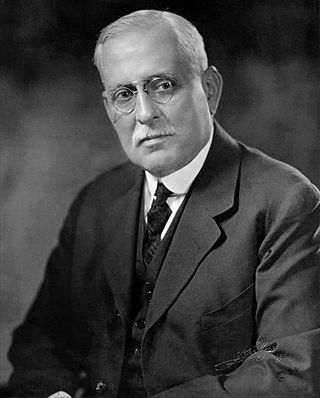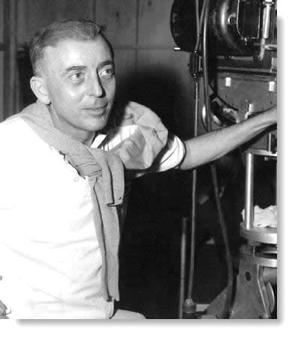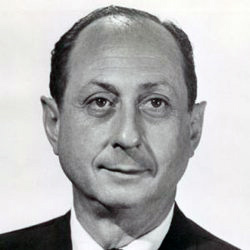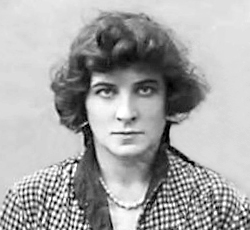
Citizen Kane is a 1941 American drama film directed by, produced by, and starring Orson Welles. Welles and Herman J. Mankiewicz wrote the screenplay. The picture was Welles' first feature film. Citizen Kane is frequently cited as the greatest film ever made. For 50 consecutive years, it stood at number 1 in the British Film Institute's Sight & Sound decennial poll of critics, and it topped the American Film Institute's 100 Years ... 100 Movies list in 1998, as well as its 2007 update. The film was nominated for Academy Awards in nine categories and it won for Best Writing by Mankiewicz and Welles. Citizen Kane is praised for Gregg Toland's cinematography, Robert Wise's editing, Bernard Herrmann's music, and its narrative structure, all of which have been considered innovative and precedent-setting.

Marion Davies was an American actress, producer, screenwriter, and philanthropist. Educated in a religious convent, Davies fled the school to pursue a career as a chorus girl. As a teenager, she appeared in several Broadway musicals and one film, Runaway Romany (1917). She soon became a featured performer in the Ziegfeld Follies.

Elda Furry, known professionally as Hedda Hopper, was an American gossip columnist and actress. At the height of her influence in the 1940s, over 35 million people read her columns.

Herman Jacob Mankiewicz was an American screenwriter who, with Orson Welles, wrote the screenplay for Citizen Kane (1941). Both Mankiewicz and Welles would go on to receive the Academy Award for Best Original Screenplay for the film. He was previously a Berlin correspondent for Women’s Wear Daily, assistant theater editor at The New York Times, and the first regular drama critic at The New Yorker. Alexander Woollcott said that Mankiewicz was the "funniest man in New York".

Louella Rose Oettinger, known professionally as Louella Parsons, was an American gossip columnist and a screenwriter. At her peak, her columns were read by 20 million people in 700 newspapers worldwide.

Samuel Insull was a British business magnate. He was an innovator and investor based in Chicago who helped create an integrated electrical infrastructure in the United States. Insull created holding companies that purchased utilities and railroads. Insull was responsible for the building of the Chicago Civic Opera House in 1929. Due to the Great Depression, his vast Midwest holding company empire collapsed, and he was accused of profiting personally by selling worthless stock to unsuspecting investors who trusted him because of his position and reputation. Following a seven-week trial, he and 16 co-defendants were acquitted of all charges after two hours of jury deliberation.

Ashton P. Stevens was an American journalist regarded as the dean of American drama critics. His newspaper column appeared in The San Francisco Examiner and later in the Chicago Herald-American. He was a theater critic for the Hearst Newspapers for 50 years, 40 of them in Chicago.

The Cat's Meow is a 2001 historical drama film directed by Peter Bogdanovich, and starring Kirsten Dunst, Eddie Izzard, Edward Herrmann, Cary Elwes, Joanna Lumley, Jennifer Tilly, and Ronan Vibert. The screenplay by Steven Peros is based on his 1997 play of the same title, which was inspired by the mysterious death of film mogul Thomas H. Ince that occurred on William Randolph Hearst's yacht during a weekend cruise celebrating Ince's birthday in November 1924. Among those in attendance were Hearst's longtime companion and film actress Marion Davies, fellow actor Charlie Chaplin, writer Elinor Glyn, columnist Louella Parsons, and actress Margaret Livingston. The film provides a speculative assessment on the unclear manner of Ince's death.

The Washington Times-Herald (1939–1954) was an American daily newspaper published in Washington, D.C. It was created by Eleanor "Cissy" Patterson of the Medill–McCormick–Patterson family when she bought The Washington Times and The Washington Herald from the syndicate newspaper publisher William Randolph Hearst (1863–1951), and merged them. The result was a "24-hour" newspaper, with 10 editions per day, from morning to evening.

Charles Davies Lederer was an American screenwriter and film director. He was born into a theatrical family in New York, and after his parents divorced, was raised in California by his aunt, Marion Davies, actress and mistress to newspaper publisher William Randolph Hearst. A child prodigy, he entered the University of California, Berkeley at age 13, but dropped out after a few years to work as a journalist with Hearst's newspapers.

Xanadu is the fictional estate of Charles Foster Kane, the title character of the film Citizen Kane (1941). The estate derives its name from the ancient city of Xanadu, known for its splendor. Hearst Castle in San Simeon, California, has been considered to be the main inspiration for Xanadu, due to the William Randolph Hearst/Kane comparison that was a large source of controversy after the film's release.
In filmmaking, internal rhythm is created by whatever appears or occurs within the shot of a moving picture. It can change within a scene (film) and from scene to scene. For example, in Citizen Kane the internal rhythm of the scene in which Kane, Leland, Bernstein, and the movers take over the offices of the Inquirer differs from the rhythm of the scene in which Kane demolishes Susan's bedroom or from the scene in which Kane and Susan spend an evening at home at Xanadu.

Mary Louise Comingore, known professionally as Dorothy Comingore, was an American film actress. She starred as Susan Alexander Kane in Citizen Kane (1941), the critically acclaimed debut film of Orson Welles. In earlier films she was credited as Linda Winters, and she had appeared on the stage as Kay Winters. Her career ended when she was caught in the Hollywood blacklist. She declined to answer questions when she was called before the House Un-American Activities Committee in 1952.

The Battle Over Citizen Kane is a 1996 American documentary film directed and produced by Thomas Lennon and Michael Epstein, from a screenplay by Lennon and Richard Ben Cramer, who also narrates. It chronicles the clash between Orson Welles and William Randolph Hearst over the production and release of Welles's 1941 film Citizen Kane, which has been considered the greatest film ever made.

William Alland was an American actor, film producer and writer, mainly of Western and science-fiction/monster films, including This Island Earth, It Came From Outer Space, Tarantula!, The Deadly Mantis, The Mole People, The Colossus of New York, The Space Children, and the three Creature from the Black Lagoon films. He worked frequently with director Jack Arnold. Alland is also remembered for his acting role as reporter Thompson, who investigates the meaning of "Rosebud" in Orson Welles's Citizen Kane (1941).

Ganna Walska was a Polish opera singer and garden enthusiast who created the Lotusland botanical gardens at her mansion in Montecito, California. She was married six times, four times to wealthy husbands. The lavish promotion of her lackluster opera career by her fourth husband, Harold Fowler McCormick, inspired aspects of the screenplay for Citizen Kane.

Xanadu is a musical comedy with a book by Douglas Carter Beane and music and lyrics by Jeff Lynne and John Farrar, based on the 1980 film of the same name, which was, in turn, inspired by the 1947 Rita Hayworth film Down to Earth. The title refers to Xanadu, the site of the Mongolian emperor Kublai Khan's summer palace.

The Citizen Kane trailer is a four-minute, self-contained, "making of" promotional short film by Orson Welles and the Mercury Theatre, released in 1940 to promote the film Citizen Kane. Unlike other standard theatrical trailers of the era, it did not feature any footage of the actual film itself, but was a wholly original pseudo-documentary piece. It is considered by numerous film scholars such as Simon Callow, Joseph McBride and Jonathan Rosenbaum to be a standalone short film, rather than a conventional "trailer", and to represent an important stage in developing Welles's directorial style.

The sources for Citizen Kane, the 1941 American motion picture that marked the feature film debut of Orson Welles, have been the subject of speculation and controversy since the project's inception. With a story spanning 60 years, the quasi-biographical film examines the life and legacy of Charles Foster Kane, played by Welles, a fictional character based in part upon the American newspaper magnate William Randolph Hearst and Chicago tycoons Samuel Insull and Harold McCormick. A rich incorporation of the experiences and knowledge of its authors, the film earned an Academy Award for Best Writing for Herman J. Mankiewicz and Welles.

The authorship of the screenplay for Citizen Kane, the 1941 American motion picture that marked the feature film debut of Orson Welles, has been one of the film's long-standing controversies. With a story spanning 60 years, the quasi-biographical film examines the life and legacy of Charles Foster Kane, played by Welles, a fictional character based in part upon the American newspaper magnate William Randolph Hearst and Chicago tycoons Samuel Insull and Harold McCormick. A rich incorporation of the experiences and knowledge of its authors, the film earned an Academy Award for Best Original Screenplay for Herman J. Mankiewicz and Welles.



















